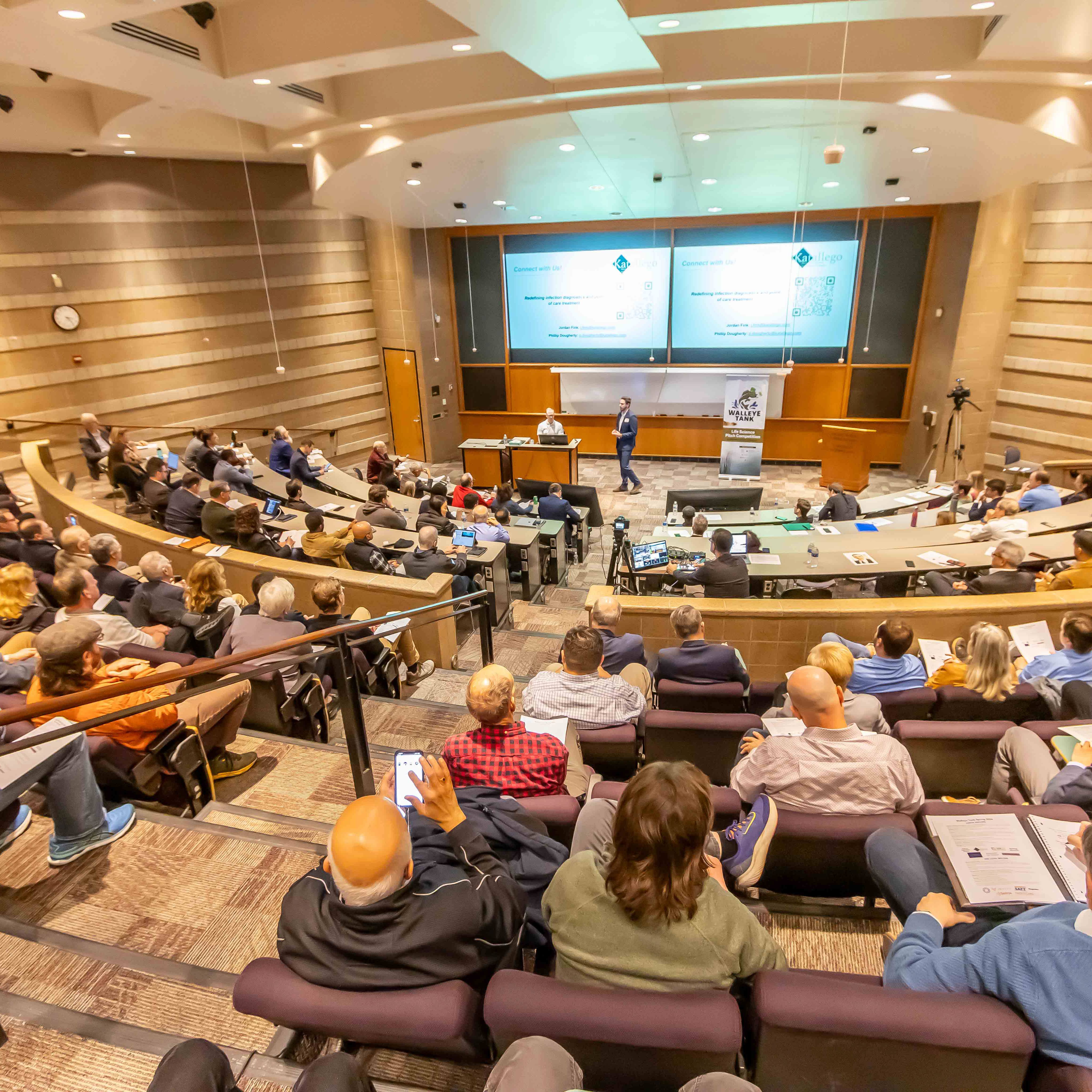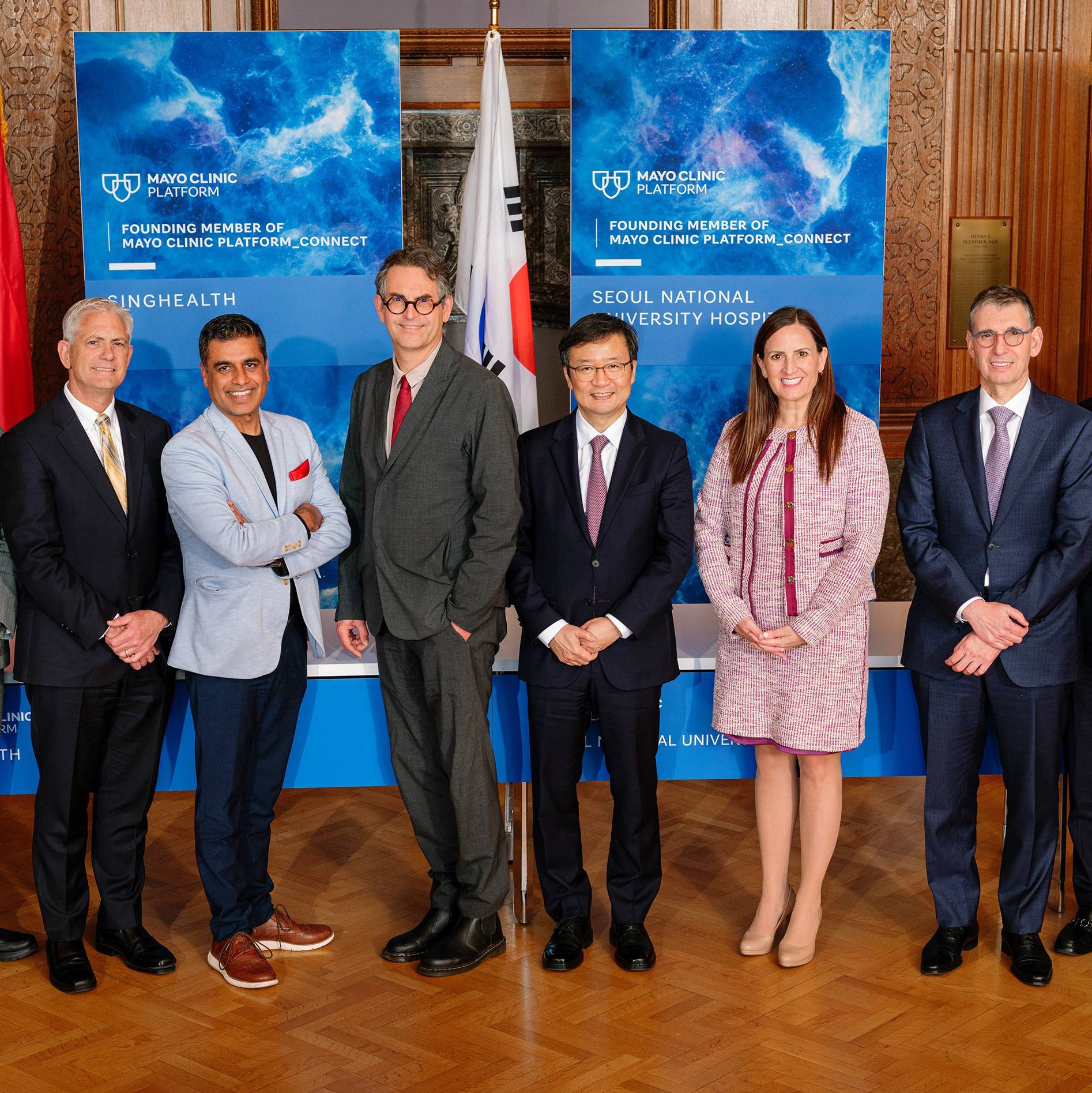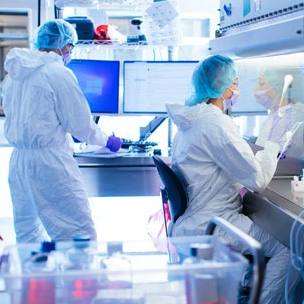-
Research
Trailblazing exposome researchers take center stage at Mayo Clinic’s Individualizing Medicine Conference

World-leading scientists highlighted their "exposomics" knowledge and discoveries during the first day of Mayo Clinic's 11th Annual Individualizing Medicine Conference in Rochester, Minnesota. Exposomics is the study of a person's cumulative environmental exposures over their lifetime, called the exposome, and the associated inherent biological responses to those exposures.
Environmental factors are associated with more than 80% of human diseases and nearly 1 in 6 deaths worldwide.
"We truly believe the exposome is the next frontier in individualized medicine," Konstantinos Lazaoridis, M.D., told the audience of 300 clinicians, researchers and other health care professionals. Dr. Lazaridis is the Carlson and Nelson Endowed Executive Director for Mayo Clinic's Center for Individualized Medicine.
"It will be profound what we can do with exposomics to understand how environmental exposures affect the health of our patients and potentially bring prevention to some of these related diseases," Dr. Lazaridis says.
The lineup of nearly a dozen pioneering scientists who took center stage shared a common overarching goal: They hope to one day understand why one person exposed to a persistent pollutant develops a disease while another with the same exposure may not. And which low-level environmental exposures contribute substantially to the onset of disease?"
Gary Miller, Ph.D., Vice Dean for Research Strategy and Innovation, and professor of Environmental Health Sciences at the Columbia University Mailman School of Public Health, says exposomics involves more than just analyzing exposures to the 80,000 commercial chemicals in production in the U.S.
"It's not just looking at flame retardants, pesticides, and plasticizers," says Dr. Miller, whose laboratory research focuses on environmental drivers of neurodegeneration, including Parkinson’s disease and Alzheimer’s disease. "These are all very important things to measure, but also factors like odor and sound, electromagnetic waves. We also think about socioeconomic issues, systemic racism, and poverty, access to green space and blue space — these are all external drivers that are impacting our health."
Dr. Miller says that when external factors impact a person's health, they are converted into biochemical signals in the body, such as a chemical modification to DNA or gene expression. These biochemical signals contribute to a person's exposome fingerprint.
Eric Klee, Ph.D., a Mayo Clinic bioinformatics scientist within the Center for Individualized Medicine, says exposome research yields a massive amount of data, requiring the work of bioinformaticians to derive insights. Dr. Klee shared with the audience that health care overall is becoming more and more data-intensive, with many layers of multi-omics and analytics being generated for a single patient.
"We need to think about how we capture and represent the data coming out of these measures of environmental exposures. How do we bring that in a standardized way and then integrate it into the systems being built? I think the frontier of what we can do through exposomics is amazing —,it will drive that next level of insight into health and disease," says Dr. Klee.
Arjun Athreya, Ph.D., a computer scientist within Mayo Clinic’s Molecular Pharmacology and Experimental Therapeutics, says artificial intelligence techniques will also help drive exposome studies to the next level.
"We're building tools and technologies that will help us scale to population-wide analysis of the exposome," Dr. Athreya says. "And much of this is an inspiration from what we have learned from working with genomics data and metabolomics."
Martine Vrijheid, Ph.D., shared her studies of the effects of environmental chemical exposures on children, including a range of plastic-associated chemicals. Dr. Vrijheid is Professor of Environmental Epidemiology and Head of the Childhood and Environment Program at the Institute for Global Health in Barcelona, Spain.
"There are very good reasons for focusing on early life – the pregnancy periods and childhood – because it contains vulnerable periods of rapid organ development that are particularly sensitive to environmental hazards," says Dr. Vrijheid, who investigates molecular omics signatures associated with environmental exposures. "If we can actually prevent environmental risks and hazards from early in life, this would be a effective way to implement prevention."
"What we've done in our studies is we've started characterizing the urban exposome," Dr. Vrijheid explains. "So many characteristics of where people live and the exposures they are exposed to in the external environment, in the minority populations in these cohorts."
Rick Woychik, Ph.D., Director of National Institute of Environmental Health Sciences and Director of National Toxicology Program, National Institutes of Health, says exposome discoveries could lead to a major transformation in medicine and science, but it will require widespread collaboration.
"Let's start thinking creatively about how we can work together. Let's build a strategy where we can take on a complex problem, and then across the biomedical community develop the tools that are necessary to make this happen."
Mayo Clinic's 11th annual Individualizing Medicine Conference continues on Thursday, when national experts will share their latest discoveries in precision nutrition and the potential benefits of tailoring nutrients and dietary guidance to a person's genes, metabolism, microbiome and other distinguishing characteristics.
Additional topics to be highlighted include precision oncology, metabolomics and bioinformatics.
Learn more
Read more stories about advances in individualized medicine.
Register to get weekly updates from the Mayo Clinic Center for Individualized Medicine blog.
Join the conversation
For more information, visit Mayo Clinic Center for Individualized Medicine, or Twitter at @MayoClinicCIM.








